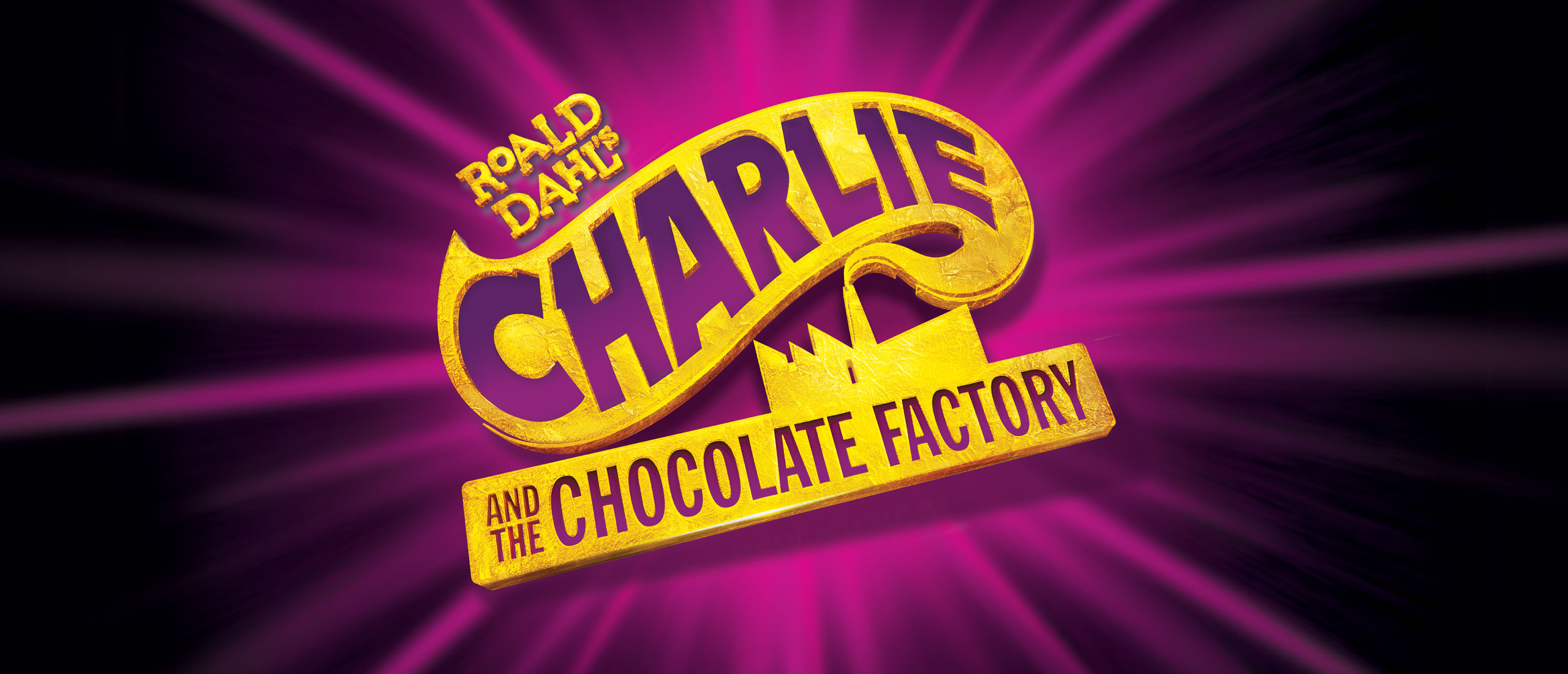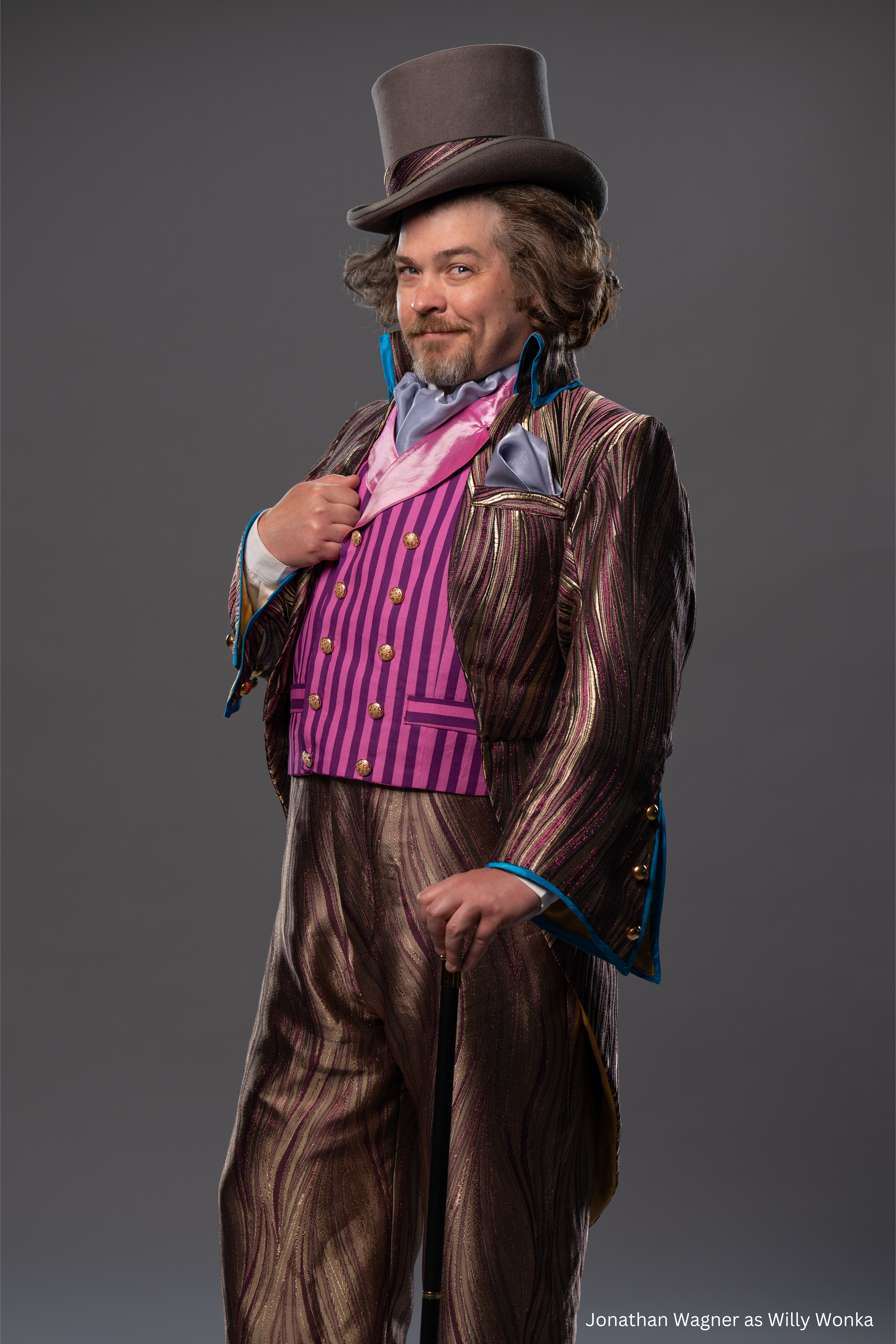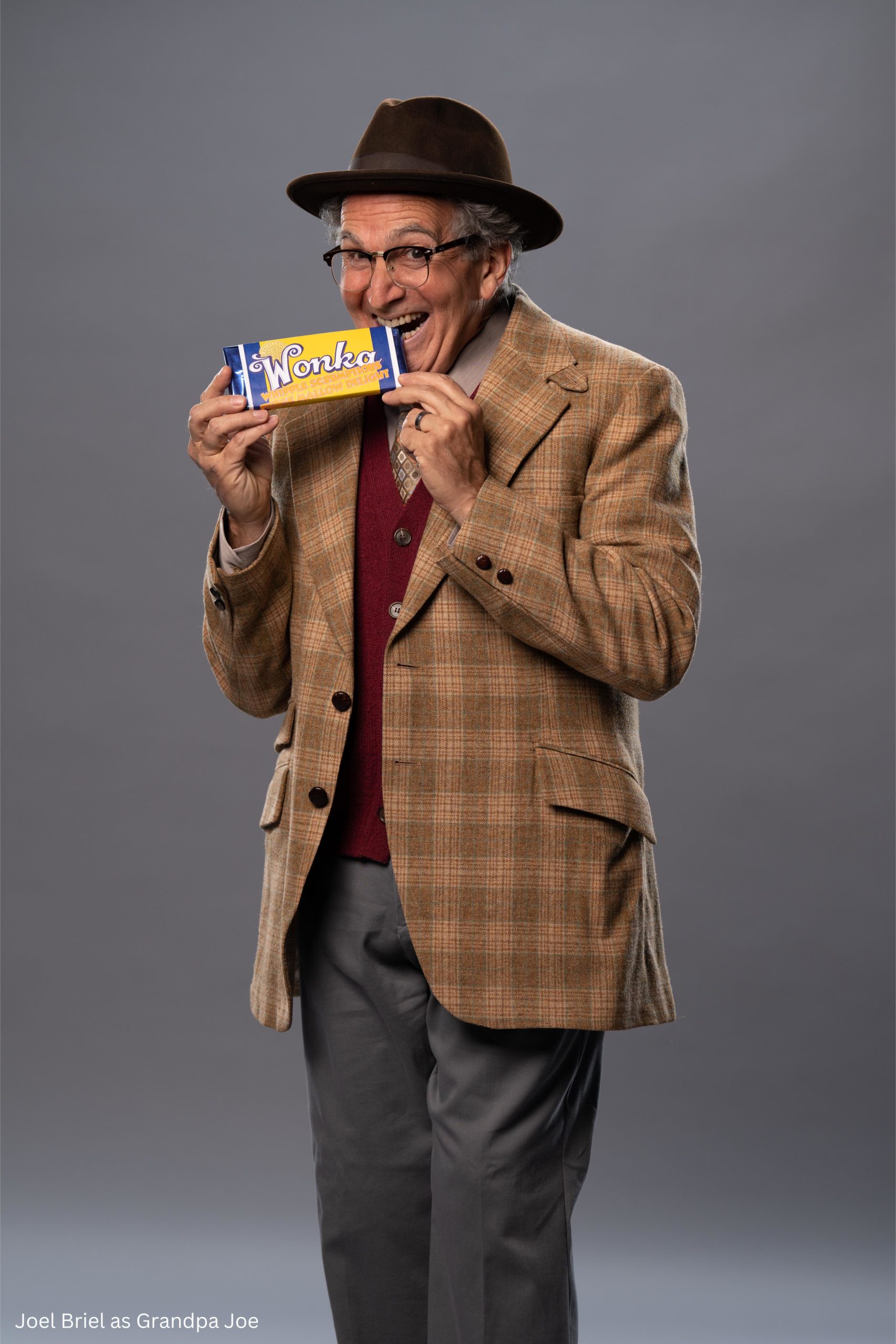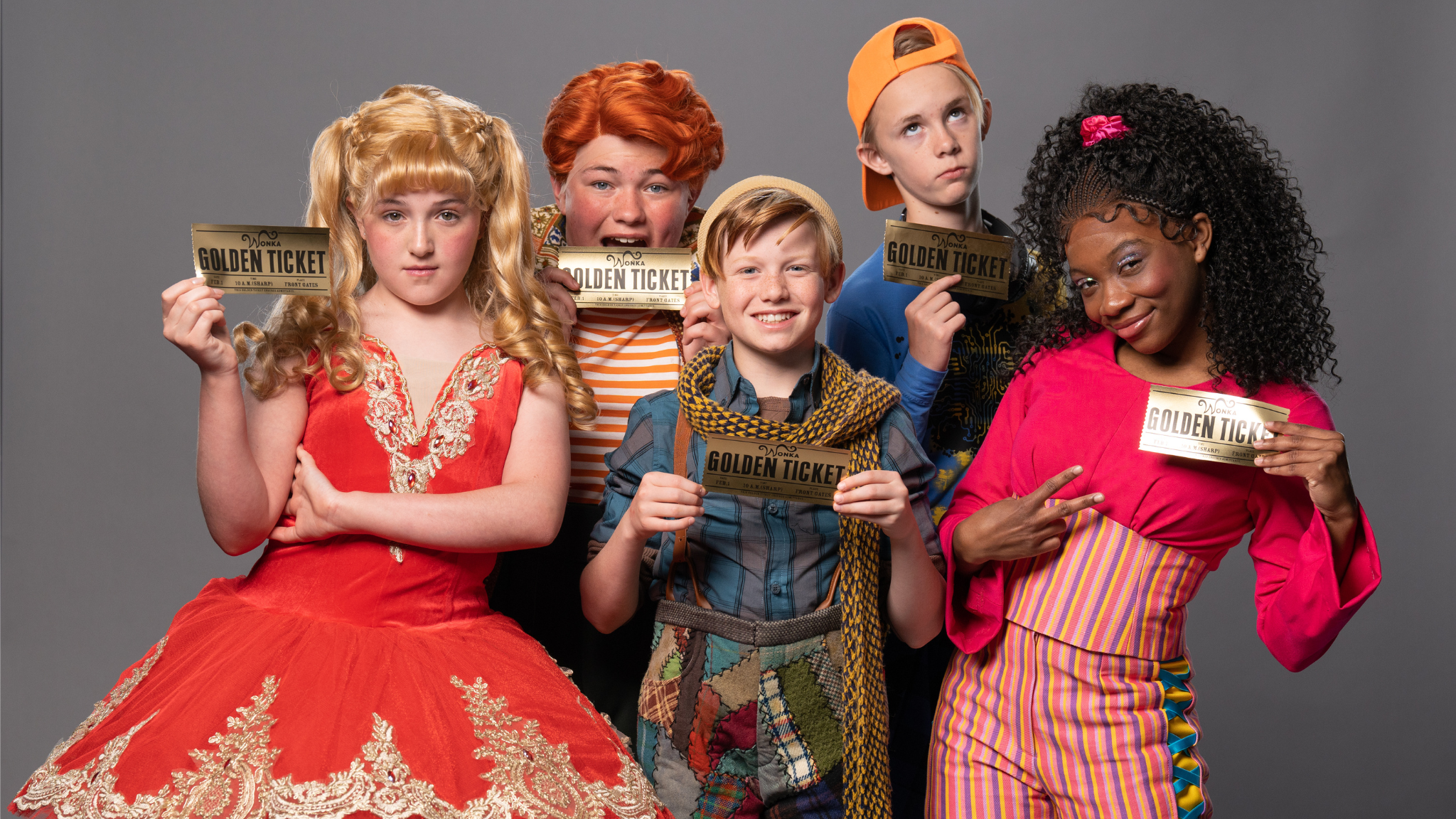IVINS — “Come with me, and you’ll be in a world of pure imagination,” begins the classic song from the 1971 cinematic adaptation of Roald Dahl’s Charlie and the Chocolate Factory. A staged update (with a book by David Greig, music by Marc Shaiman with lyrical collaboration with Scott Wittman) directed by Michael Heitzman is made a wonderful dose of pure imagination at the Tuacahn Amphitheatre.

Charlie and the Chocolate Factory begins with the young adult Willy Wonka catching the spies of other chocolate and candy makers attempting to steal his recipes. Wonka’s pain and anger causes him to close the factory. While he does reopen the factory and produces more fantastic confections than before, the gates stay locked. “Nobody ever goes in, and nobody ever comes out.” Fast forward many years ahead, and the audience meets Charlie Bucket (played by Charlie Stover), a penniless but endlessly positive and kind child who lives in the same town as Willy Wonka’s chocolate factory, with his mother (played by Ashley Moniz) and two sets of grandparents (played by Joel Briel, Tara Sweeney, Randal Keith, and Beatriz Melo). Charlie is quite an aspiring chocolatier, with an obsession for all things Wonka. “I’d give anything to see inside that factory—who wouldn’t?” Charlie tells the Candyman of the newly opened Wonka candy store. The Candyman, whom the audience knows is Willy Wonka in disguise, has a new sense of wonder and inspiration after this encounter. Not long after, the contest to find one of five golden tickets to go inside and try to win a grand prize of a lifetime supply of candy begins.
Returning to Tuacahn after playing Dewey in Tuacahn’s 2021 production of The School of Rock, Jonathan Wagner stars as Willy Wonka. Wagner’s portrayal was fun, with his endless quips and his physicality. However, at times Wagner felt like “Jack Black as Willy Wonka.” This bold choice resulted in a loss of the wild and sweet Wonka that has had lovers of this book, movies, and musical enthralled since his introduction to the world.

In addition to the quintessential chocolatier, the story depends on the iconic quintet of the lucky golden ticket winners and their companions. Stover’s portrayal of Charlie Bucket is so honest and sweet that I could not help but fall in love with him, especially when he sang the beautiful song “A Letter From Charlie Bucket.” The little dreamer cannot stop making something out of nothing, and that is exactly what draws Willy Wonka to Charlie and vice versa. And as the former head of security for Wonka, the eccentric Grandpa Joe (played by Joel Briel) feeds into Charlie’s love of Wonka and helps him make the best of any circumstance. It is a sweet (no pun intended) performance from Briel that adds heart to the story.
Augustus Gloop (played by Jacob Tousley), the lederhosen-clad gluttonous Bavarian whose mother (Bethany Slomka) puts him on a pedestal (literally) when he is first introduced to audience. Tousley was adorable and zesty for food, particularly meat. Up next is Laurel Knell as Daddy’s little Communist — I mean, Princess. Knell was as petulant as she was fiery, which was a slight surprise from the sweet little ballerina image she presented. This tiny Russian terror has a built-in bank, also known as her equally materialistic father, Mr. Salt (played by James Channing), and they are a fun pair to watch.
Another enjoyable father-daughter duo to watch in this show is the Beauregardes. Violet Beauregarde (played by Gabriella Scott) truly is the “Queen of Pop.” Her gum skills are as “popping” as her eyeshadow and her vocals. And with her social media glued father (played by Rendell Debose), the pair are a flare of modern fashion and mannerisms. And last, but certainly not least, there is that disconnected and device dependent hacker, Mike Teavee (played by Mack Lawrence). This child is seemingly only happy when he is behind a screen, whether that be a TV, a computer, his cellphone, or his constant companion, a Nintendo Switch. And his hoot of a mother (played by Erin Stoddard) is only happy when aided with copious amounts of alcohol and pills.

I was a little bit confused as to the time period of the show. The Beauregardes and Mike Teavee act like 21st century Americans, but the rest of the characters and the designs (including the costumes designed by Ryan Moller) seemed to be in the 1960s. With these blatant differences, I was often not sure which elements were out of place. I was also confused about Wonka’s secret workforce, the Oompa Loompas. Upon their first scene and song, I thought I was suddenly in The Wizard of Oz, as the Oompa Loompas reminded me of that dancing scourge of Oz, the Jitterbugs. Perhaps it was the purple bean like shape of the attached puppet bodies onto the black suit clad ensemble members, or the fact that they were quite menacing with little knives, but I got more creeps from these characters than the vermicious knids.
These details aside, the Tuacahn production of Charlie and the Chocolate Factory was a fun-filled spectacle that took the audience into the board game Candyland and inspired me to be like Charlie: “someone good, and honest, and kind” who makes something out of nothing. I hope that those who see this production never lose their “Pure Imagination.”
[box]Charlie and the Chocolate Factory plays at various times through October 19 at the Tuacahn Amphitheatre (1100 Tuacahn Drive, Ivins). Tickets are $30-146. For more information, visit tuacahn.org.[/box]

